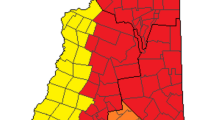Abstract
Contemporary regulation of food safety incorporates principles of quality management and systemic performance objectives that used to characterize private standards. Conversely, private standards are covering ground that used to be the realm of regulation. The nature of the two is becoming increasingly indistinguishable. The case study of the Ugandan fish export industry highlights how management methods borrowed from private standards can be applied to public regulation to achieve seemingly conflicting objectives. In the late 1990s, the EU imposed repeated bans on fish imported from Uganda on the basis of food safety concerns. However, the EU did not provide scientific proof that the fish were actually “unsafe.” Rather, the poor performance of Uganda’s regulatory and monitoring system was used as justification. Only by fixing “the system” (of regulations and inspections) and performing the ritual of laboratory testing for all consignments for export to the EU did the Ugandan industry regain its status as a “safe” source of fish. Yet, gaps and inconsistencies abound in the current Ugandan fish safety management system. Some operations are by necessity carried out as “rituals of verification.” Given the importance of microbiological tests and laboratories in the compliance system, “alchemic rituals” provide an appropriate metaphor. These rituals are part and parcel of a model that reassures the EU fish-eating public that all is under control in Uganda from boat to point of export. As a consequence, actual non-compliance from boat to landing site allows the fishery to survive as an artisanal operation.
Similar content being viewed by others
Abbreviations
- DFR:
-
Department for Fisheries Resources
- EU:
-
European Union
- FIRRI:
-
Fishery Resources Research Institute
- GHP:
-
good hygiene practice
- GMP:
-
good manufacturing practice
- HACCP:
-
Hazard Analysis and Critical Control Point
- ISO:
-
International Standards Organization
- MAAIF:
-
Ministry of Agriculture, Animal Industry and Fisheries
- UFPEA:
-
Uganda Fish Processors and Exporters Association
- UNBS:
-
Uganda National Bureau of Standards
- UNIDO:
-
United Nations Industrial Development Organization
- WTO:
-
World Trade Organization
References
Anderson J. L. (2003). The International Seafood Trade Woodhead, Cambridge, UK
Bahiigwa G., Keizire B. B. (2003). Significance of Fisheries to the Economy: A Document to Support the Poverty Eradication Action Plan (PEAP). Environment and Natural Resources Sector Working Group, Kampala, Uganda
Béné C.. (2005). The good, the bad and the ugly: Discourse, policy controversies and the role of science in the politics of shrimp farming development. Development Policy Review 23(5):585–614
Bingen J., Siyengo A.. (2002). Standards and corporate restructuring in the Michigan dry bean industry. Agriculture and Human Values 19:311–323
Busch L.. (2000). The moral economy of standards. Journal of Rural Studies 16:273–283
Busch L., Bain C.. (2004). New! Improved? The transformation of the global agrifood system. Rural Sociology 69(3):321–346
Busch L., Tanaka K.. (1996). Rites of passage: Constructing quality in a commodity subsector. Science, Technology and Human Values 21(1):3–27
Columbia Electronic Encyclopedia (2001). “Alchemy.” Accessed on October 16, 2006 at www.bartleby.com/65/al/alchemy.html
Constance A., Bonanno A. (2000). Regulating the global fisheries: The World Wildlife Fund, Unilever, and the Marine Stewardship Council. Agriculture and Human Values 17:125–139
Daviron B., Ponte S. (2005). The Coffee Paradox: Global Markets, Commodity Trade and the Elusive Promise of Development Zed Books, London, UK
Echols M. A. (2001). Food Safety and the WTO Kluwer Law International, Norwell, Massachusetts
EC (European Commission) (1998). “Final report on a mission to Uganda 16/11/1998 – 20/11/1998. Fishery products.” XXIV/1524/98. Brussels, The Netherlands: European Commission
EC (European Commission) (1999). “Final report of a mission carried out in Uganda from 19/8 to 20/8/1999 for the purpose of assessing controls on pesticide residues in fish coming from Lake Victoria.” DG SANCO/1129/1999. Brussels, The Netherlands: European Commission
EC (European Commission) (2000). “Report of a mission carried out in Uganda from 2 to 6 October 2000 assessing the conditions of production of fishery products and the verification of the measures on pesticides in fish.” DG(SANCO)/1277/2000. Brussels, The Netherlands: European Commission
FIRRI (Fisheries Resources Research Institute) (2003a). “Survey of the regional fish trade.” Research report for the Lake Victoria Environmental Management Project and the Lake Victoria Fisheries Research Project. Jinja, Uganda: FIRRI
FIRRI (Fisheries Resources Research Institute) (2003b). Globalisation and fish utilization and marketing study. FIRRI, Jinja, Uganda
Freidberg S. (2004). French Beans and Food Scares: Culture and Commerce in an Anxious Age Oxford University Press, New York
Gibbon, P. (1997). “Of saviours and punks: The political economy of the Nile perch marketing chain in Tanzania” CDR Working Paper 97.3. Copenhagen, Denmark: Centre for Development Research
Gibbon P., Ponte S. (2005). Trading Down: Africa, Value Chains and the Global Economy Temple University Press, Philadelphia, Pennsylvania
Giovannucci D., Ponte S. (2005). Standards as a new form of social contract? Sustainability initiatives in the coffee industry. Food Policy 30(3):284–301
Graham M. (1929). The Victoria Nyanza and its Fisheries: A Report of the Fishery Survey of Lake Victoria 1927–1928 Crown Agents for Colonies, London, UK
Hatanaka M., Bain C., Busch L.. (2005). Third party certification in the global agrifood system. Food Policy 30(3):354–369
Henson S., Loader R.. (2001). Barriers to agricultural exports from developing countries: The role of sanitary and phytosanitary requirements. World Development 29(1):85–102
Henson, S. and W. Mitullah (2004). “Kenyan exports of Nile perch: The impact of food safety standards on an export-oriented supply chain.” World Bank Policy Research Working Paper 3349. Washington DC: World Bank
Henson S., Reardon T.. (2005). Private agri-food standards: Implications for food policy and the agri-food system. Food Policy 30(3):241–253
Hooker N. H., Caswell J. A.. (1999a). A Framework for evaluating nontariff barriers to trade related to sanitary and phytosanitary regulation. Journal of Agricultural Economics 50(2):234–246
Hooker N. H., Caswell J. A.. (1999b). Two case studies of food quality management systems. Journal of International Food and Agribusiness Marketing 11(1):57–71
Jaffee S., Henson S. (2004). Standards and Agro-Food Exports from Developing Countries: Rebalancing the Debate World Bank, Washington DC
Jaffee S., Masakure O.. (2005). Strategic use of private standards to enhance international competitiveness: Vegetable exports from Kenya and elsewhere. Food Policy 30(3):316–333
Kyangwa I., Odgonkara O. K., Nasuna A. (2002). Social Cultural Influences on Sanitation, Fish Handling and Artisanal Fish Processing in the Fishing Communities of Lake Victoria. FIRRI, Jinja
Konefal J., Mascarenhas M., Hatanaka M.. (2005). Governance in the global agro-food system: Backlighting the role of transnational supermarket chains. Agriculture and Human Values 22:291–302
Kolding, J., P. van Zwieten, J. Manyala, J. Okedi, Y. D. Mgaya, and F. Orach-Meza (2005). “Regional Synthesis Report on Fisheries Research and Management: States, Trends and Processes.” Wageningen, Netherlands and Dar es Salaam, Tanzania: Lake Victoria Environmental Management Programme
MAAIF (Ministry of Agriculture, Animal Industry and Fisheries) (2000). “Manual of standard operating procedures for fish inspection and quality assurance.” Department of Fisheries Resources. Entebbe, Uganda: MAAIF
MAAIF (Ministry of Agriculture, Animal Industry and Fisheries) (2001). “Fisheries management component: Lake Victoria frame survey 2000.” Department of Fisheries Resources, MAAIF: Entebbe
Mansfield B. (2003). Fish, factory trawlers, and imitation crab: The nature of quality in the seafood industry. Journal of Rural Studies 19:9–21
Mbuga, J. S., A. Getabu, A. Asila, M. Medard, and R. Abila (1998). “Trawling in Lake Victoria: Its history, status and effects.” IUCN Eastern Africa Programme Report No. 3. Nairobi, Kenya: IUCN
Mehta R., George J. (eds). (2005). Food Safety Regulation Concerns and Trade: The Developing Country Perspective. Macmillan, New Delhi, India
Nadvi, K. and F. Wältring (2002). “Making sense of global standards.” INEF Report 58/2002. INEF-University of Duisburg, Germany
Namisi, P. W. (2002). “Socio-economic implications of the current fishery distribution patterns on Lake Victoria, Uganda.” FIRRI Technical Document. Jinja: FIRRI
NARO (National Agricultural Research Organisation) (2001). Agriculture in Uganda: Volume IV – Livestock and Fisheries. Fountain Publishers, Kampala, Uganda
NRI and IITA (Natural Resource Institute) and (International Institute of Tropical Agriculture) (2002). “Transaction cost analysis: Final report.” Prepared for the Plan for the Modernisation of Agriculture, Kampala, Uganda
Nyombi, K. and S. Bolwig (2004). “A qualitative evaluation of alternative development strategies for Ugandan fisheries.” Research report submitted to the Strategic Criteria for Rural Investment in Productivity Program. International Food Policy Research Institute: Washington DC
Ogutu-Ohwayo R. (1999). The impact of Nile perch harvesting on fish and fisheries in Uganda. In: Bahiigwa G., Muramira E. (eds) Capacity Building for Integrating Environmental Considerations in Development Planning and Decision-making with Reference to the Fishing Industry in Uganda, Economic Policy Research Centre, Makerere, University Campus, Kampala, Uganda, pp. 27–49
Otsuki T., Wilson J. S., Sewadeh M.. (2001). Saving two in a billion: Quantifying the trade effect of European food safety standards on African exports. Food Policy 26:495–514
Ponte S., Gibbon P.. (2005). Quality standards, conventions and the governance of global value chains. Economy and Society 37(1):1–31
Ponte, S. (2006). “Ecolabels and fish trade: Marine Stewardship Council (MSC) certification and the South African hake industry.” TRALAC Working Paper (9/2006). Stellenbosch, South Africa: Trade Law Centre for Southern Africa
Ponte, S., J. Raakjæer, and L. Campling (2007). Swimming upstream: Market access for African fish exports in the context of WTO and EU negotiations and regulation. Development Policy Review 25(1):113-138
Power M. (1997). The Audit Society: Rituals of Verification Oxford University Press, Oxford, UK
Reardon T., Codron J. M., Busch L., Bingen J., Harris C.. (2001). Global change in agrifood grades and standards: Agribusiness strategic responses in developing countries. International Food and Agribusiness Management 2(3):421–435
Rudaheranwa N., Matovi F., Musinguzi W. (2003). Enhancing Uganda’s access to international markets: A focus on quality. In: Wilson J. S., Abiola V. O. (eds). Standards and Global Trade: A Voice for Africa. World Bank, Washington DC, pp. 371–426
Strathern M. (2000). Introduction: New accountabilities. In: Strathern M. (ed) Audit Cultures: Anthropological Studies in Accountability, Ethics and the Academy. Routledge, London, UK
The Alchemy Website (2005). [Homepage.] Accessed on October 16, 2006 at www.levity.com/alchemy/home.html
Thorpe A., Bennett E.. (2004). Market-driven international fish supply chains: The case of Nile perch from Africa’s Lake Victoria. International Food and Agribusiness Management Review 7(4):1–18
UBoS (Uganda Bureau of Statistics) (2003). Statistical Bulletin. Entebbe, UboS, Uganda
Unnevehr L. J.. (2000). Food safety issues and fresh food product exports from LDCs. Agricultural Economics 23(3):231–240
Waniala, N. (2002). “Impact of SPS measures on Uganda fish exports.” Paper presented at the UNCTAD workshop on Standards and Trade, May 16–17, 2002, Geneva, Switzerland
World Bank (2005). “Food safety and agricultural health standards – Challenges and opportunities for developing country exports.” Report No. 31207. Poverty Reduction and Economic Management Trade Unit and Agriculture and Rural Development Department. Washington DC: World Bank
Wilson J. S., Abiola V. O. (eds) (2003). Standards and Global Trade: A Voice for Africa. World Bank, Washington DC
Acknowledgements
I am indebted to Martin Fowler, Peter Gibbon, Michael Friis Jensen, Jesper Raakjær Nielsen, Lisa Ann Richey, and four anonymous reviewers for useful comments on earlier versions of this article. All mistakes and omissions are fully my own responsibility. The fieldwork upon which this paper is based was funded by the Danish Social Science Research Council (SSF). While in Uganda, I was affiliated with the Economic Policy Research Centre, Makerere University campus, Kampala. I am grateful to both institutions for their support.
Author information
Authors and Affiliations
Corresponding author
Additional information
Stefano Ponte is Senior Researcher at the Danish Institute for International Studies, Copenhagen. His research focuses on the role of standards, regulation and quality conventions in the governance of agro-food value chains, with particular focus on Africa. He is co-author of Trading Down: Africa, Value Chains and the Global Economy and The Coffee Paradox: Global Markets, Commodity Trade and the Elusive Promise of Development.
Rights and permissions
About this article
Cite this article
Ponte, S. Bans, tests, and alchemy: Food safety regulation and the Uganda fish export industry. Agric Hum Values 24, 179–193 (2007). https://doi.org/10.1007/s10460-006-9046-9
Accepted:
Published:
Issue Date:
DOI: https://doi.org/10.1007/s10460-006-9046-9




